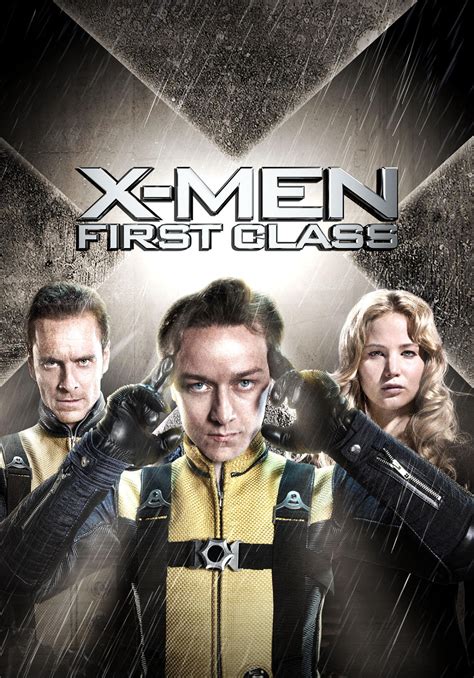X-Men: First Class

Description:
In 1962, the United States government enlists the help of Mutants with superhuman abilities to stop a malicious dictator who is determined to start World War III. The young mutants must come together to prevent a global catastrophe.Keywords:
Mutation, Cold War, Friendship, Identity, BetrayalWhat is the sequel to X-Men: First Class?
The sequel to "X-Men: First Class" is "X-Men: Days of Future Past," released in 2014. The film combines the original X-Men cast with the newer cast from "First Class," featuring a time-travel plot where Wolverine is sent back to the 1970s to prevent a catastrophic event that could lead to the extinction of mutants. Directed by Bryan Singer, it explores themes of prejudice and the consequences of actions across timelines.
What is the point of X-Men: First Class?
"X-Men: First Class" serves as an origin story for the X-Men franchise, exploring the early relationship between Charles Xavier (Professor X) and Erik Lensherr (Magneto). Set during the Cold War, it highlights their differing ideologies regarding mutant rights and human coexistence. The film illustrates the formation of the X-Men team to combat the threat posed by Sebastian Shaw and his Hellfire Club. Ultimately, it addresses themes of acceptance, prejudice, and the moral complexities of power, setting the stage for the ongoing conflict between mutants and humans.
How much did Hugh Jackman get paid for X-Men: First Class?
In "X-Men: First Class," Hugh Jackman made a brief cameo as Wolverine. For this appearance, he reportedly received around $100,000. His cameo was a nod to the character's popularity, although his role in the film was minor compared to his previous performances in the X-Men franchise.
Is X-Men: First Class a different timeline?
Yes, "X-Men: First Class" is set in a different timeline within the X-Men film series. It serves as a prequel to the original X-Men trilogy, exploring the origins of key characters like Charles Xavier and Erik Lensherr (Magneto) during the early 1960s. The events of this film create an alternate timeline that diverges from the original trilogy, which is further explored in subsequent films like "X-Men: Days of Future Past." This restructuring allows for new character dynamics and plot developments while maintaining ties to the established universe.
Explore More Categories:
Survival Thriller Buddy Cop Cloning Conservation Military Dramedy Unexpected Human Survival Crocodile Vulnerability Autobiographical Drama Hysteria Gonzo Political Thriller Female Led Brooklyn Multiverse Biographical Documentary Tense Atmosphere Life Reflection Siblinghood Teen Romance Meta Horror Biographical Crime Drama German Film